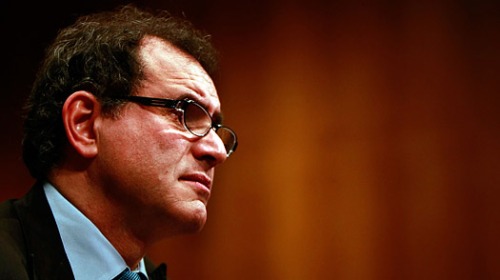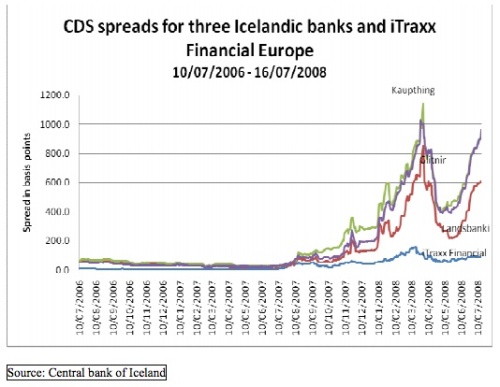Sovereign Credit Rating Service: A Public Good?
It is inevitable that credit rating agencies partially catalyzed the credit crunch the financial system experienced in 2008. Some have attributed the recession to the way Moody’s, S&P, and Fitch Ratings rated fixed income products; one of whom is Annette Heuser of the Bertelsman Foundation. I recently stumbled on her TED talk, and got interested. In her talk, she made a bold statement: “credit rating services, especially sovereign credit ratings, should be a public good.” Watch her TED talk here.
In other words, she wants sovereign credit rating services to be free and transparent for everybody: clients, investors, non-clients, and non-investors. As an effort to realize this, she and her team have been working on a “forward-looking” credit-rating model that they name INCRA. She doesn’t want it to be a business, so operations under the project have been done under the non-profit umbrella and financing of the project has been based on endowments made voluntarily by outside contributors. Read her latest update on INCRA here.
During the talk, she justifies her decision to develop a free sovereign credit-rating model on several fundamental beliefs: i. The downgrading of sovereign credit ratings increases the cost of borrowing for governments–usually emerging countries–that are dependent on the international credit market for their infrastructure financing; ii. The market of credit rating is imperfect–it is an oligopoly–with three key players in it (Moody’s, S&P, Fitch ratings); iii. There is a ‘moral hazard’ in the credit rating business: she believes that credit rating agencies tend to deliberately overestimate the creditworthiness of a particular institution, because that institution is the one paying for the credit rating service. Since fixed-income investors might not know about this, they would trust whatever the credit rating agencies publish on their reports.
I find some of her reasons a little bit too bold. One has something to do with the assumption Ms. Heuser is making on how credit rating agencies always rate in their clients’ favor–the institutions/countries hiring them to rate their institutions/countries (refer to point iv). This might be true in the context of what happened in the 2008 mortgage-backed securities fiasco, but I don’t think the case can be extrapolated to sovereign credit ratings. I still couldn’t find any relevant studies, so here’s a question: do governments pay credit-rating agencies annually, thus making them having a voice when upgrades/downgrades of their countries ratings are being discussed? I know governments hire sell-side/buy-side financial analysts for capital restructuring reasons (i.e. Greece hired BlackRock), but do they also hire credit rating agencies?
Another point is the following (refer to point i): while it is true that a central bank’s policy to increase a country’s interest rates will directly affect the cost of borrowing, there is insufficient evidence demonstrating that the downgrading of a country’s credit rating would do the same. I cannot intuitively see any direct correlation between credit upgrades/downgrades with the central bank’s choice of interest rates. I haven’t done any research on this yet, but I believe that the argument on the correlation between credit rating upgrades and the increase in interest rates is still a matter of academic debate. In the end, American investors invest in Indonesian bonds based on what Bank Indonesia wants Indonesia’s short-term or long-term treasury bonds to be. Indonesia determines its own cost of borrowing–Moody’s, S&P, and Fitch might (potentially) just contribute to an insignificant premium of the bond rates in secondary capital markets.
Ms. Heuser is probably referring to foreign direct investments (FDIs), which are correlated with sovereign credit ratings. Investors would demand higher equity (not bond?) returns when investing in the emerging markets, or countries with ratings just slightly above the investment grade. If this is the case, it makes sense, but then again, the amount of FDI inflow has little correlation with how much the government should allocate its budget for foreign debt payments. Additionally, the central bank also has power to influence FDI. Again, take the case of Indonesia. Ever since former Federal Reserve Chairman Ben Bernanke announced its tapering off of quantitative easing, investors have been pulling out their investments out of Jakarta (Early August 2013). Weeks and months afterwards, Bank Indonesia, increased interest rates by hundreds of basis points (Late August 2013). Since local currency is used to finance local investments, a good proxy for FDI inflows/outflows would be this year’s $-Rupiah exchange rates, which can be seen here. Also since investments are made in equities, the Jakarta Composite Index serves as a good indicator, which can be viewed here. Look at the significant increase and decrease of the rate/index over August-September. This shows that ratings might alter the the outflows/inflows of direct investments, but not foreign investors’ preferences in purchasing government debt. Unless the ratings are incorporated to the calculation of the probability of sovereign debt defaults.
So far, INCRA has produced a total of 6 reports, which can be downloaded here. Most of them are produced by political scientists and economists within the academic field. While I doubt that INCRA’s presence will change the landscape of the credit-rating business, I’m still interested in where this project is going.







